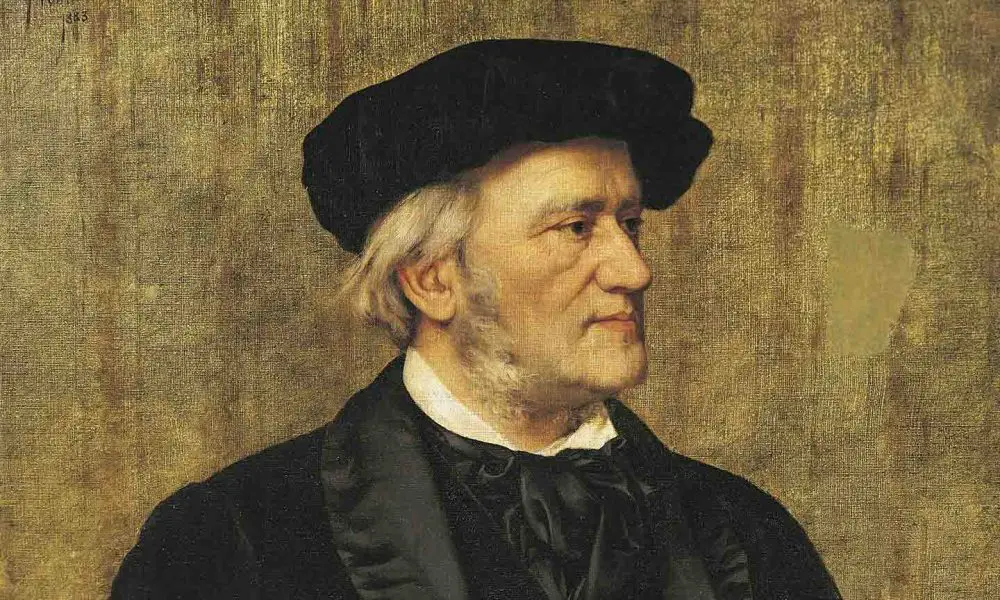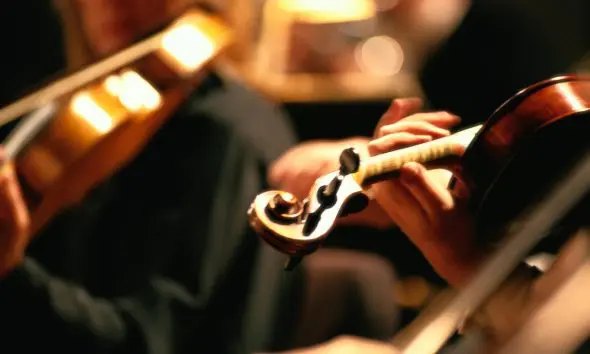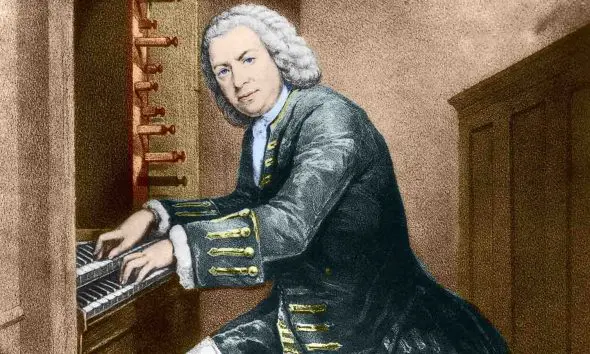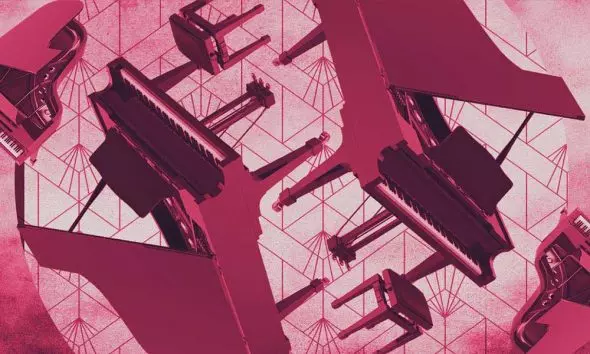Best Wagner Works: 10 Essential Pieces By The Great Composer
Discover our selection of the best Wagner works featuring 10 masterpieces including ‘The Ring Cycle’ and ‘Tristan Und Isolde’.

Richard Wagner’s radical works sent shock waves across nineteenth-century Europe. Each of his mature operas expresses deep insights into the nature of the human condition, influencing fields as diverse as philosophy, politics, and psychiatry. They have also spurred emulation and reaction among musicians, writers, and many other artists. A charismatic and often capricious figure, Wagner was – and remains – one of the most controversial and influential composers in musical history.
One of Wagner’s innovations was to employ leitmotifs, brief musical themes associated with specific characters, objects, or ideas, which are subtly woven into the greater musical fabric. This allows the orchestra to illustrate the stage action and ‘speak’ of motivations and consequences of which the characters remain unaware. Through mythological settings, he created powerful allegories exploring issues with universal resonance, such as love, power, heroism, and duty. Each of his operas contains orchestral passages – whether overtures, preludes, or other excerpts – that have found a place in the concert hall repertoire. Hearing them outside their operatic context reveals just how powerful Wagner’s musical gift was. His music has the ability to sweep the listener along in an endless stream of expressively orchestrated sound. But his works are also filled with imaginatively crafted moments of delectable beauty. Discover our selection of the best Wagner works featuring 10 masterpieces including, of course, The Ring Cycle.
Listen to the best of Wagner on Apple Music and Spotify.
Der Ring Des Nibelungen (The Ring Of The Nibelung)
Der Ring Des Nibelungen (usually known simply as The Ring Cycle) is essentially four epic operas all linked together by the same story. In sequence, they are: Das Rheingold, Die Walküre, Siegfried, and Götterdämmerung. Wagner’s sixteen-hour operatic tetralogy traces a power struggle that sees families ripped apart, hearts broken, heroes slaughtered, and fortunes won and lost. Many of the characters, places, and ideas in The Ring Cycle, one of Wagner’s best works, have their very own signature tune, or leitmotif.
Das Rheingold (The Rhinegold)
The ‘Prologue’ to Wagner’s four-opera cycle The Ring revolves around a gold ring, which gives unlimited power to the wearer who renounces love, and by the end of the opera has already changed hands three times. It introduces the characters that will drive this drama to its epic conclusion, and the musical themes that Wagner develops through the cycle.
Die Walküre (The Valkyrie)
Die Walküre (The Valkyrie) is the second of the four epic operas in Wagner’s Der Ring Des Nibelungen (usually known simply as The Ring Cycle). The Valkyries of the title are an army of maidens who ride through the air on horseback, led by Brünnhilde, Wotan’s warrior-daughter, who ends the opera surrounded by a circle of flames. Listen out for Wagner’s elaborate use of leitmotifs – musical phrases associated with individual characters, places, ideas, or plot elements. The best-known media use of Die Walküre is in the 1979 film Apocalypse Now when the music is played as the American helicopters bombard a Vietnamese village.
Siegfried
The third part of Wagner’s massive operatic tetralogy centers upon Siegfried who slays the evil Fafnor (disguised as a dragon), and the wretched dwarf Mime, before rescuing Brünnhilde from the ring of fire. Think of it as a sort of nineteenth-century version of The Lord Of The Rings trilogy, albeit with a fourth installment.
Götterdämmerung (Twilight Of The Gods)
Götterdämmerung (Twilight Of The Gods) is the fourth and final work of Wagner’s opera cycle Der Ring Des Nibelungen. A series of dramatic deceptions lead to the murder of Siegfried, Brünnhilde’s suicide, the destruction of a world order, and the return of the Ring to the Rhinemaidens. By the opera’s end world order has been restored – but at a devastating cost.
Der Fliegende Holländer (The Flying Dutchman)
Der Fliegende Holländer (The Flying Dutchman) was the first of Wagner’s operas to explore the theme of redemptive love, its tempestuous overture was inspired by the composer’s rough voyage from Riga to London. Condemned by the Devil to sail the world until Judgement Day, a Dutch sea captain has one chance every seven years to escape the curse by winning the love of a good woman.
Die Meistersinger Von Nürnberg (The Mastersingers Of Nuremberg)
The Mastersingers Of Nuremberg, the only one of Wagner’s mature operas that deal with conventional human beings, is a ravishingly inspired melodic outpouring on an epic scale. It is the only comedy among his mature operas and is also unusual among his works in being set in a historically well-defined time and place rather than in a mythical or legendary setting.
Parsifal
Wagner’s swansong, a masterpiece of sustained drama, is principally concerned with the retrieval by the Knights of the Holy Grail of the spear that pierced Christ’s side at his crucifixion. Listen out for Wagner’s elaborate use of leitmotifs – musical phrases associated with individual characters, places, ideas, or plot elements. He had mastered the union of music and meaning.
Tristan Und Isolde
Wagner’s most audacious score, famous for its overture and the closing ‘Liebestod’, recounts the Celtic legend of the tragic love of Tristan and Isolde. The opera, one of Wagner’s best works, was enormously influential among Western classical composers and provided direct inspiration to composers such as Gustav Mahler, Richard Strauss, Arnold Schoenberg, and Benjamin Britten.
Siegfried Idyll
Siegfried Idyll is a symphonic poem for chamber orchestra reflecting a gentle, tender side of the composer. Wagner composed the Siegfried Idyll as a birthday present for his second wife, Cosima, and it was first performed by a small ensemble, on a staircase in their villa, on Christmas Day 1870. Wagner originally intended the Siegfried Idyll to remain a private piece but, due to financial pressures, he decided to sell the score to publisher B. Schott in 1878.
Recommended Recording
Georg Solti’s phenomenal recording of Wagner’s ‘Ring’ cycle was hailed by Gramophone and BBC Music Magazine as the best recording ever made. Not only did the 1966 release set a benchmark for all future Wagner performances, but it also revolutionized the entire nature of opera recording.
Sir Georg Solti’s recording of Wagner’s Ring Cycle (Der Ring Des Nibelungen) can be bought here.
Discover more of our articles collecting the best works of composers through the ages.







Kourosh
September 27, 2020 at 2:45 pm
Two of his great Romantic operas are missing: Tannhäuser and Lohengrin. Now Tannhäuser is Wagner’s weakest opera yet it has great moments: in the fist act, the overture, Tannhauser’s praising Venus. In the second ,act Elizabeth’s addressing the hall, Wolfram’s prasing love. And in the last act, the cgorus of pilgrims. Wolfgang Sawallisch’s recording with Wolfgang Windgasson is considered the best Tannhäuser. Lohengrin is his best Romantic opera. The prelude is enogh to make you fall in love with the whole opera. The best recording of Lohengrin, in my opinion, is Rudolf Kempe’s recording with Elizabeth Grummar as Elsa, Jess Thomas as the swan knigh.
Thomas
October 5, 2021 at 2:00 pm
Tannhauser. In particular, the 1954 live performance led by Keilberth w/Vinay, Brouwenstijn, and Fischer-Dieskau. Then go and listen to everything else.